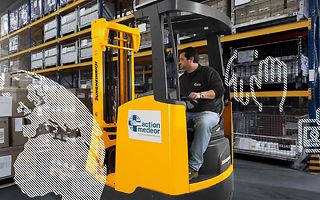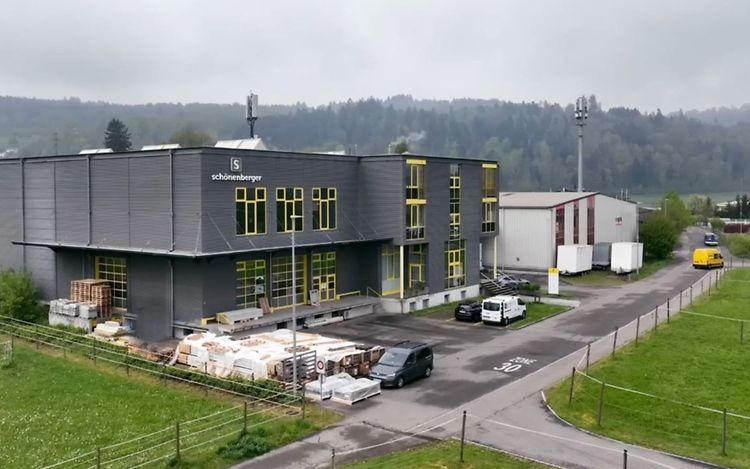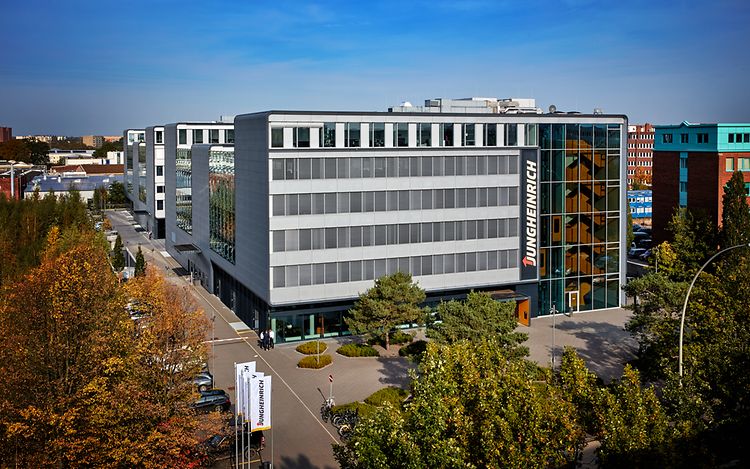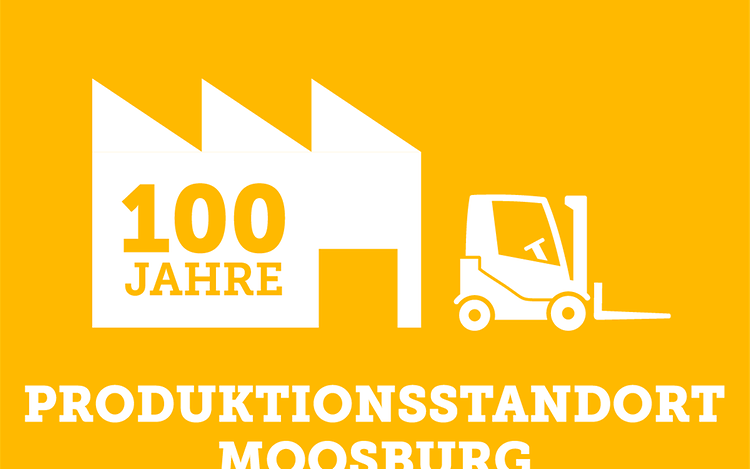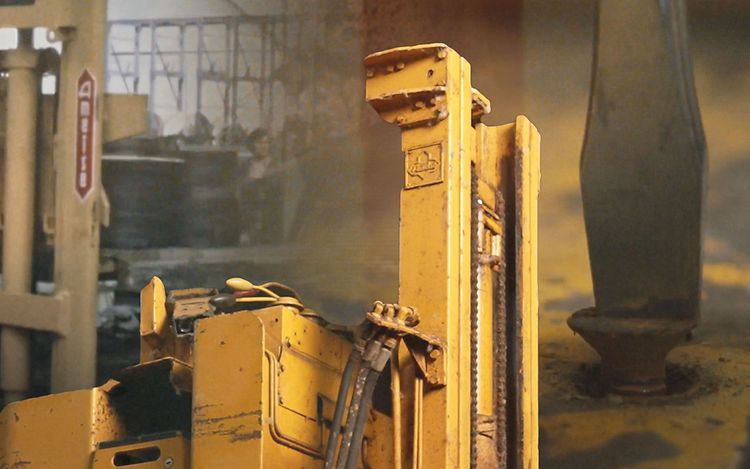Jungheinrich was the first intralogistics company to join the Initiative for Responsible Mining Assurance (IRMA) in spring 2024. The global initiative is committed to compliance with environmental and social standards in the extraction of raw materials. But what does the cooperation look like in practice, what topics is IRMA currently driving forward and where is Jungheinrich's focus? Jungheinrich supply chain expert Ellen provides answers to these and other questions.
Ellen, Jungheinrich joined IRMA last year. What does the collaboration look like in concrete terms? And are there any initial successes?
"We are currently still in an intensive learning and familiarisation phase. It is primarily characterised by learning, understanding and identifying possible engagement formats. We also regularly take part in the monthly buyer group meetings, where a very constructive dialogue takes place. Of course, networking takes time - we are still in the early stages. Direct dialogue with other IRMA members, for example with major German car manufacturers, is particularly valuable for us at the moment. We are also already working on specific campaigns, such as the IRMA Buyers Group Letter to Mining Companies. Here, IRMA as a collective sends a letter to selected mines to draw attention to the IRMA system and encourage them to be audited in accordance with the IRMA standard."
You were recently at the IRMA Annual General Meeting and took part in the so-called ‘Guest Session’. What topics were discussed there - and by whom?
"The dialogue was very exciting. Around 80 representatives from within IRMA came together there - from the mining industry to downstream buyers, NGOs, affected communities, trade unions and investors through to consulting service providers. The focus was on the question of how IRMA can ensure that even more mines are audited according to the IRMA standard. What is needed to scale up the IRMA system even further? There are currently 100 mines in the IRMA system, 90 per cent of which are based on customer requirements. In addition to lithium mines, the focus is also on other raw materials such as cobalt, nickel, graphite, manganese and copper.
A second focus was on the traceability of certain raw materials. IRMA recently published its own Chain of Custody standard. Here too, IRMA is still in the early stages, but the first pilot projects are already underway. My impression was that this topic is being strongly promoted by the buyers, especially the car manufacturers.
I also found the World Café format with small group discussions, in which one representative from each of the six stakeholder groups was present, particularly valuable. This enabled a real change of perspective. For example, I found it very interesting to sit around a table with mine operators and understand how extensive and far-reaching an IRMA audit is for mine operators and how it can be used strategically."
What's next? What goals and milestones would Jungheinrich like to achieve by participating in IRMA in the coming weeks and months?
"Anyone who becomes a member commits to taking concrete measures to promote responsible mining. Mining sector representatives must initiate an audit process in at least one mine within one year of joining IRMA. As a purchasing member, we are committed to encouraging mining companies to participate in IRMA and have their mines assessed by independent third parties.
Our focus is on lithium. Currently, 40 per cent of global lithium production is already in the IRMA system. We are therefore getting ever closer to a critical mass. The overarching goal is to fully identify our lithium supply chains - in other words, to know all partners along the chain - and to work towards auditing all mines from which we source lithium in accordance with the IRMA standard. That is certainly still a long way off, but it is an important and right thing to do. It would mean that we would have taken a major step towards transparent, inclusive, environmentally and socially responsible raw material extraction for a raw material that is very relevant to us. We are convinced that IRMA is exactly the right partner for this."
Thank you for the insights, Ellen!

